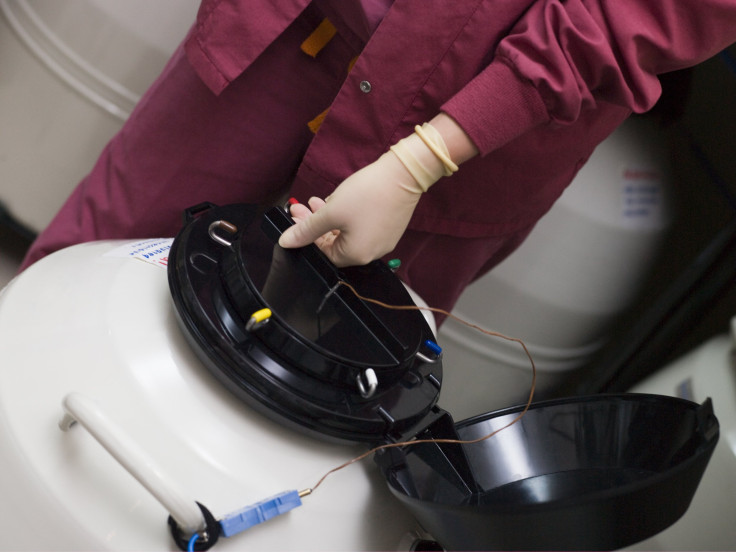Chicago Appeals Court Awards Woman Custody Of Her Frozen Pre-Embryos Over Her Ex's Objections

In an ongoing saga that’s sure to top most people’s worst break-up tale, a Chicago appeals court has reaffirmed the right for a women to use three frozen pre-embryos (fertilized but unimplanted embryos) created by her and an ex-boyfriend over the prospective father’s wishes.
The latest salvo in what might be called a pre-custody battle, 33-year-old Jacob Szafranski failed to persuade the court to reverse an earlier court decision awarding 43-year-old Dr. Karla Dunston possession of the pre-embryos.
Ruling 2 to 1, the appeals court determined that the agreement made between Szafranski and Dunston to create the embryos prior to Dr. Dunston’s chemotherapy for her non-Hodgkin’s lymphoma in 2009 constituted an oral contract. "Karla asked if he would ‘be willing to provide sperm to make pre-embryos with her,'" the court wrote, as reported by the New York Times. "He responded, 'Yes,' telling Karla that he wanted to help her have a child."
Dr. Dunston, though having one child through another donated embryo, is reportedly now infertile. "After winning a tough battle with cancer, these three embryos represent Dr. Dunston's last chance to have children that share her genetic material," her attorney Abram Moore said. "Mr. Szafranski agreed to create these embryos for one purpose: so that Dr. Dunston could use them to attempt to have children if she survived cancer."
The languishing legal fight between Dr. Dunston and her once-long time friend has ping-ponged between the courts, and Szafranski plans to further appeal the case to the State Supreme Court, according to his lawyer, Brain A. Schoeder.
According to court documents, though Szafranski was reluctant but willing to allow the pre-embryos to be used at Dr. Dunston’s discretion, even after their five-month relationship ended, he changed his mind after the end of a later relationship that was directly caused by the possibility of him becoming a father to Dr. Dunston’s child. For her part, the Illinois doctor has always maintained that she would be entirely legally and financially responsible for any resulting children.
The muddled debate over what exactly should be done about disputed embryos has, predictably, been settled differently depending in which state it happens (the existence of a premade contract, which Dr. Dunston and Szafranski drafted but did not sign, makes things a lot easier). Just this April, Nick Loeb, the ex-boyfriend of movie and TV star Sofia Vergara sued her in the California court system to retain custody of the two remaining frozen pre-embryos made during their relationship so that he can use them in a surrogate mother.
The advances in assisted reproduction technology have certainly created new and awkward questions for both the court and the public to answer. But it appears that Szafranski believes the question to be asked is much simpler. "This case raises fundamental issues about the need to have both parties consent to the use of embryos to create human life. No one should be forced into parenthood if that is not something they want. We believe consent should be required in order to procreate, and we will appeal this verdict," said Schoeder.



























